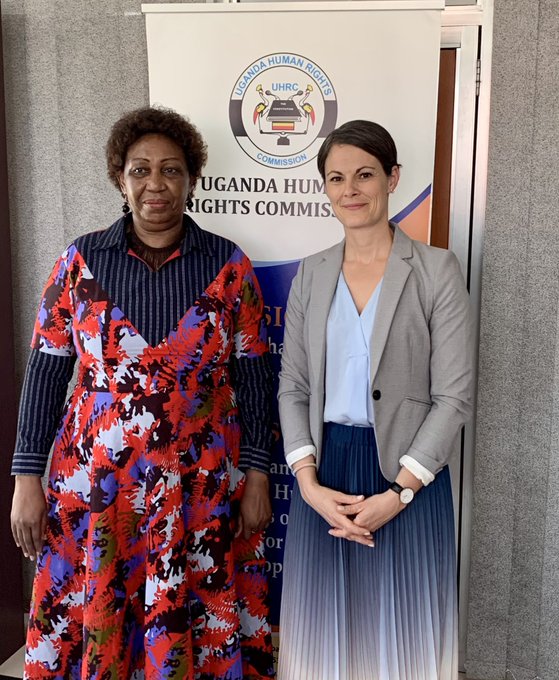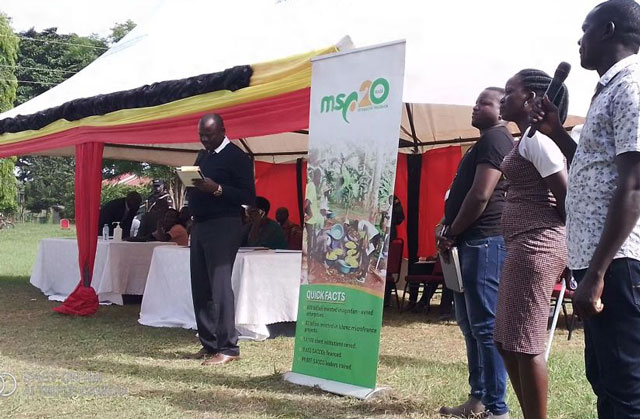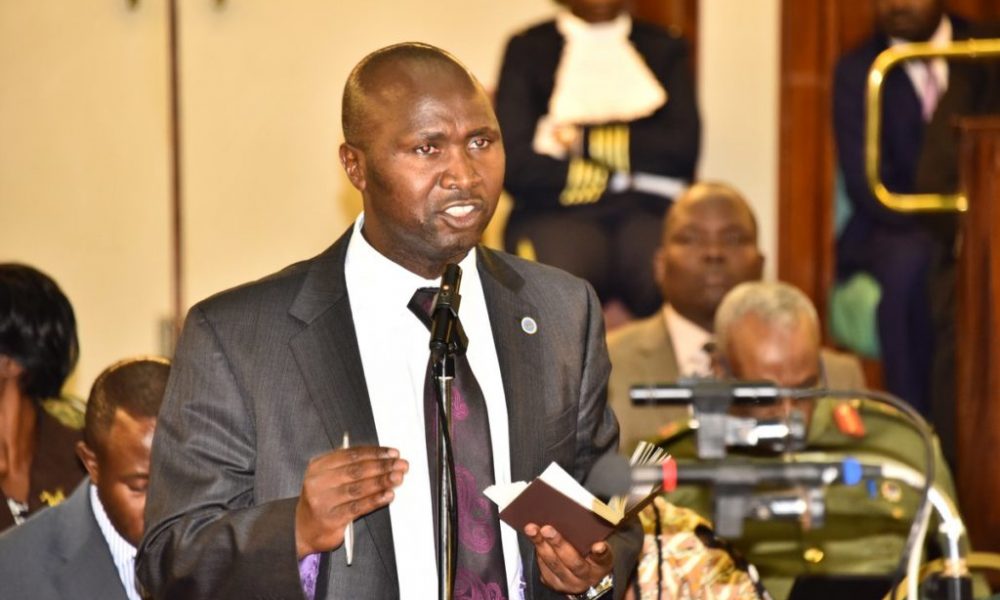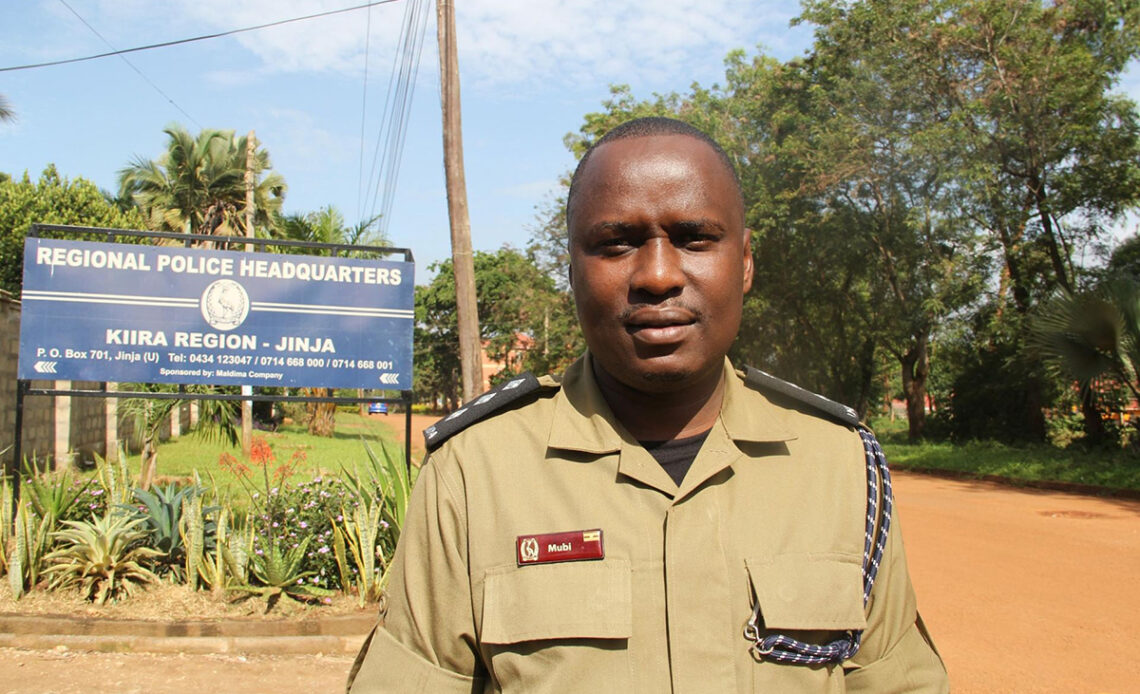Uganda’s representation at the 75th Session of the United Nations Convention on Torture (CAT) faced a severe setback as protestors disrupted Attorney General Kiryowa Kiwanuka’s two-day defense in Geneva, Switzerland. The demonstrators went so far as to label the Attorney General as “a liar” and implored the UN to press for justice in Uganda.
In a contentious two day defence at the 75th Session of the United Nations Convention on Torture, Attorney General Kiryowa Kiwanuka faced a tumultuous situation. Protesters disrupted the proceeding, accused the Attorney General of falsehoods and demanded that the UN take action to seek justice for victims of torture in Uganda and to hold accountable those responsible, including government officials who they believed were concealing such crimes.
During his live-streamed presentation of Uganda’s second periodic report as a state party to the Convention Against Torture, Attorney General Kiwanuka made bold claims. He asserted that the government not only sanctions those responsible for human rights violations but also compensates the victims in proven cases. However, notable was the absence of any supporting data for these claims, leaving committee members and observers skeptical.
Kiryowa Kiwanuka also boasted that “several orders have been made,” including compensation for torture victims, discontinuation of criminal proceedings against suspects due to torture, and holding perpetrators of torture personally liable.
He proudly proclaimed that Uganda was the first in Africa and second in the world to enact laws against torture. However, he remained vague on the specific challenges faced by the country in ensuring the full enjoyment of human rights.
The Attorney General insisted that security forces in Uganda had integrated human rights observance into their training curriculum and policies. He also mentioned the existence of a Cabinet Sub-Committee responsible for regularly appraising Parliament and Cabinet on human rights abuses and offering a remedial blueprint. Despite these assertions, no specific details were provided.
Kiwanuka emphasized that the Ugandan government was committed to raising awareness about human rights and highlighted the progress made in protecting and promoting the rights of its citizens. He stated that this commitment was not due to external pressure but was informed by the country’s turbulent history.
However, the following day, as the Attorney General returned to elaborate on his claims, a group of protesters, who turned out to be Ugandan demonstrators, disrupted the session. They vehemently accused Mr. Kiwanuka of lying and shouted, “Uganda is bleeding, the Attorney General is a liar.” The protesters implored the UN to seek justice for torture victims in Uganda and to impose sanctions on government officials they believed were complicit in or concealing these crimes.
These demonstrators wore t-shirts adorned with images of individuals they claimed were supporters of the Opposition National Unity Platform (NUP). They alleged that these individuals had been killed, tortured, or had gone missing at the hands of security forces. These accusations shed light on a dark chapter in Uganda’s recent history.
The NUP, led by celebrity musician turned politician Robert Kyagulanyi, commonly known as Bobi Wine, was a focal point of the protests. Bobi Wine was the NUP’s presidential flag bearer in the 2021 elections, and his arrest during the campaigns triggered demonstrations. President Museveni, in a televised address, stated that security forces had shot dead at least 54 of the protestors, whom he primarily described as “terrorists.”
The demonstrators in Geneva pointed out that this month marked the second anniversary of those shootings, raising questions about the lack of identification or punishment for the perpetrators. This was seen as evidence of impunity that Uganda was attempting to evade scrutiny for and lie about.
Security personnel removed the demonstrators from the session and instructed them to delete any images captured. This came after Attorney General Kiwanuka, accompanied by officials from various security and government institutions, had asserted that Uganda did not operate illegal torture chambers, known ironically as “safe houses.”
In response to the AG’s statements, Bobi Wine took to Twitter to denounce the chief government legal advisor as a “consummate liar,” suggesting that serving under President Museveni led to dishonesty.
The situation in Uganda has been a matter of contention for some time. A police investigation, whose findings were published, concluded that only 13 of those shot dead following the arrest of Robert Kyagulanyi during the 2021 election campaigns had any connection to the protests, which turned violent.
The rest were said to have succumbed to “stray bullets.” The conflicting official accounts of what the Uganda Law Society previously categorized as “extra-judicial killings” have prompted calls for justice and accountability from various rights campaigners, including the US Senate Foreign Relations Committee, which petitioned President Joe Biden to take action against the perpetrators of these abuses.




















